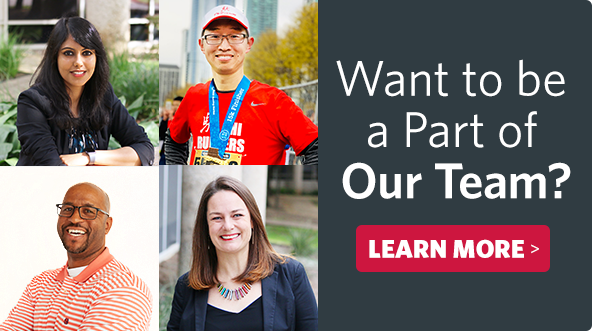When developing a new molecular assay, one of the first tasks is determining the feasibility of design and development. We count on Scott Morrison, Manager of Research, to ensure that we’re building state-of-the-art products that improve customer workflow. Based in Toronto, he joined Luminex in 2008 after earning his bachelor’s and master’s degrees in biophysics and biochemistry at the University of Guelph.

Q: What are your responsibilities at Luminex?
A: I manage the feasibility phase of assay development. When we have a defined product that we want to build—a customer or marketing requirement to detect a specific pathogen or diagnose a certain disease—we design an assay for that need using Luminex platforms. I focus on molecular diagnostics, so the assays are all DNA-based. On a day-to-day basis, my work spans everything from primary literature research for understanding the pathogen or disease, to data analysis, to planning for validation studies and assisting with regulatory submissions.
Q: What did you do before this job?
A: Luminex was my first full-time job out of university. I started in an entry-level position that focused on the early stages of product development and design transfer, and worked my way up from there. I appreciate that I got a broad range of experience and found an area that suits me so well.
Q: What drew you to Luminex?
A: Toronto doesn’t have the strongest biotech sector. There are a lot of good academic and research jobs, but coming out of my master’s degree, I knew that I wanted to get into the industry. I really like the mix of science and business that the biotech industry offers. Luminex was an established company in Toronto with a good group of people. When an opportunity came up, I jumped at it. It’s really a great place to work.
Q: If you weren’t working in research at Luminex, where would you be?
A: I like skiing and snowboarding a lot. It would be great to live out west in the mountains and get paid to ski and ride all day—maybe start a backcountry heli or cat skiing operation.
Q: If you could solve any clinical or genetic challenge, what would it be?
A: It would have to be the accessibility of healthcare. The cost of healthcare is so extreme. In Canada, we’re fortunate to have universal healthcare benefits, but sustainability is still a concern. There are many aspects to healthcare, but for my part, I would love to be able to develop inexpensive yet effective diagnostics that ultimately reduce the burden on the healthcare system.
Q: What is something about you that no one at Luminex knows?
A: Most people don’t know that I’m a very good strawberry farmer. I grew up on a farm and learned a lot of important lessons from working with strawberries. They’re a very labor-intensive crop, and there are many aspects you cannot control, like the weather, so you need to plan for good years and bad years. Since our farm invited customers to pick their own strawberries, I learned quickly from a very young age about customer service.
Q: What is your favorite thing to do in Toronto on the weekend?
A: My favorite thing to do in Toronto is to not be in Toronto. In the winter, if there’s snow on the ski hills, I’ll be there with my family, and in the summer, I like to get away to a cottage outside of the city.
